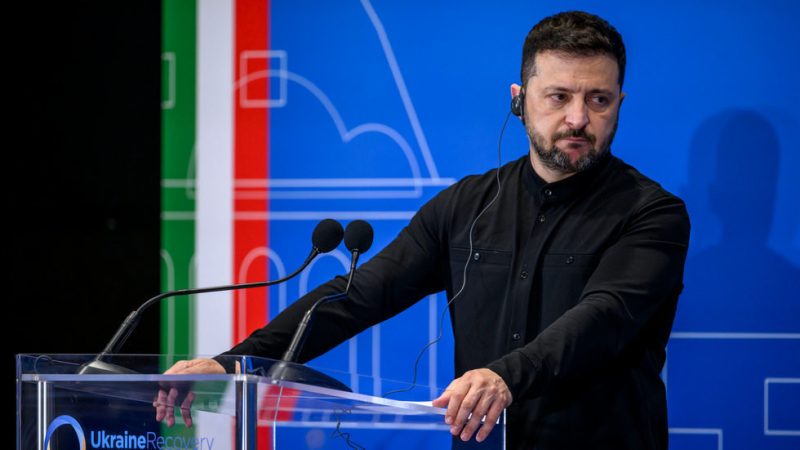
Reports are emerging suggesting a potential shift in Ukraine’s stance regarding territorial concessions. The Telegraph, citing unnamed sources, claims that President Volodymyr Zelensky may be willing to cede some territory currently under Russian control in exchange for a clear pathway to NATO membership. This represents a significant development, potentially altering the trajectory of the ongoing conflict and sparking intense debate both domestically and internationally.
This reported willingness to compromise on territorial integrity marks a departure from Zelensky’s previous unwavering stance. For months, he has vehemently rejected any suggestions of land concessions, emphasizing the principle of restoring Ukraine’s internationally recognized borders. The potential shift suggests a careful calculation of risks and rewards, prioritizing long-term security within the NATO alliance over immediate territorial gains.
The implications of such a move are profound. For Ukraine, it would involve accepting a painful loss of territory and potentially triggering internal political turmoil. However, the perceived benefits of NATO membership – namely, collective security guarantees and strengthened deterrence against future Russian aggression – might outweigh the costs in Zelensky’s assessment. This strategic calculation would undoubtedly hinge on the concrete security guarantees offered by NATO in return for territorial concessions.
The international community is likely to react with a mixture of surprise and scrutiny. NATO allies would need to weigh the potential benefits of admitting Ukraine against the risks of further escalating the conflict with Russia. The reaction from Russia is also uncertain, with the Kremlin potentially viewing any concessions as a sign of weakness, potentially emboldening them to pursue further territorial ambitions. The geopolitical implications of such a move are vast and far-reaching, potentially reshaping the security landscape of Eastern Europe for years to come.
Ultimately, the veracity of these reports and the ultimate decision rests with President Zelensky and the Ukrainian government. The coming weeks and months will be crucial in determining the future course of action and the long-term consequences of this potential paradigm shift in Ukraine’s negotiating strategy. The situation remains fluid and requires careful consideration of all perspectives and potential outcomes.










